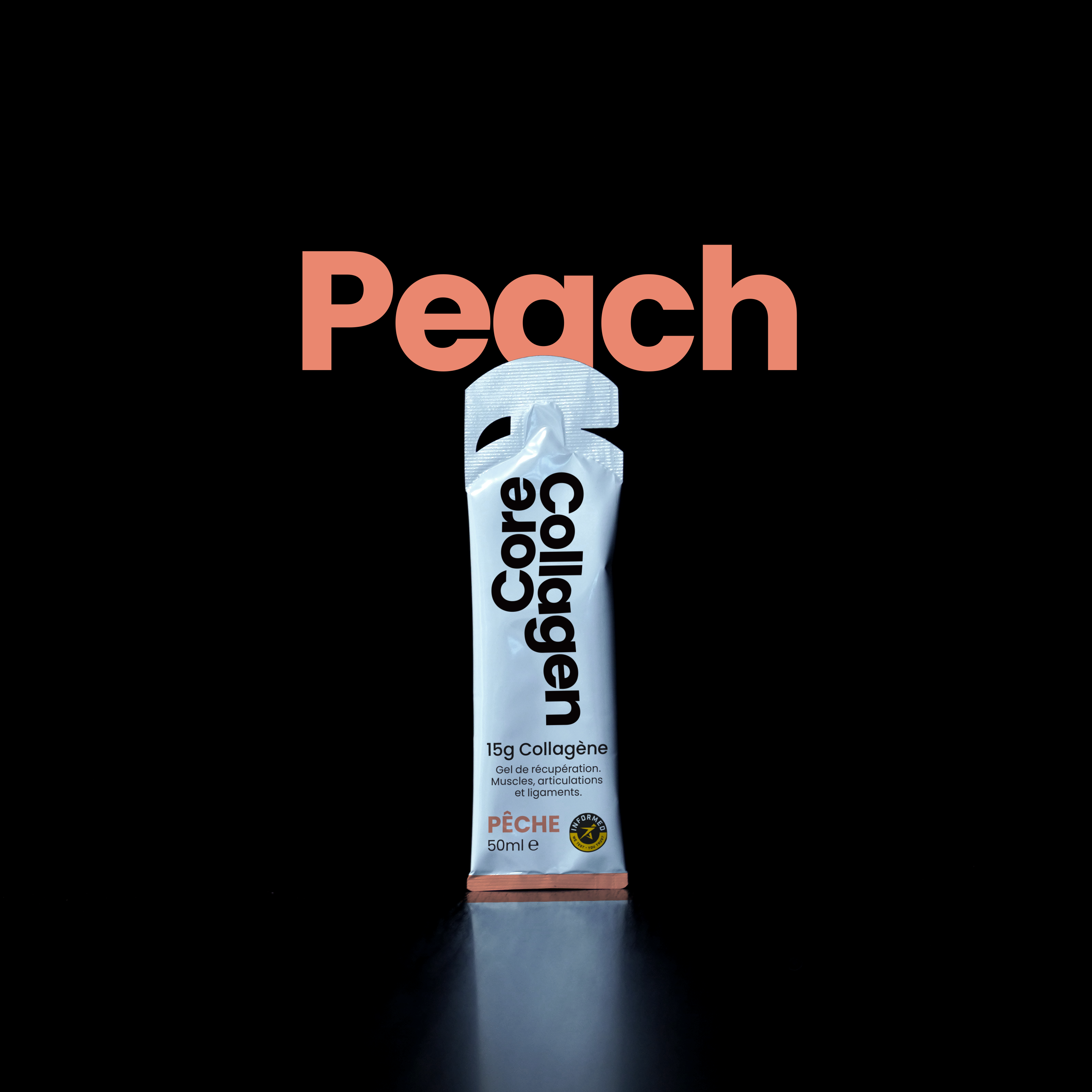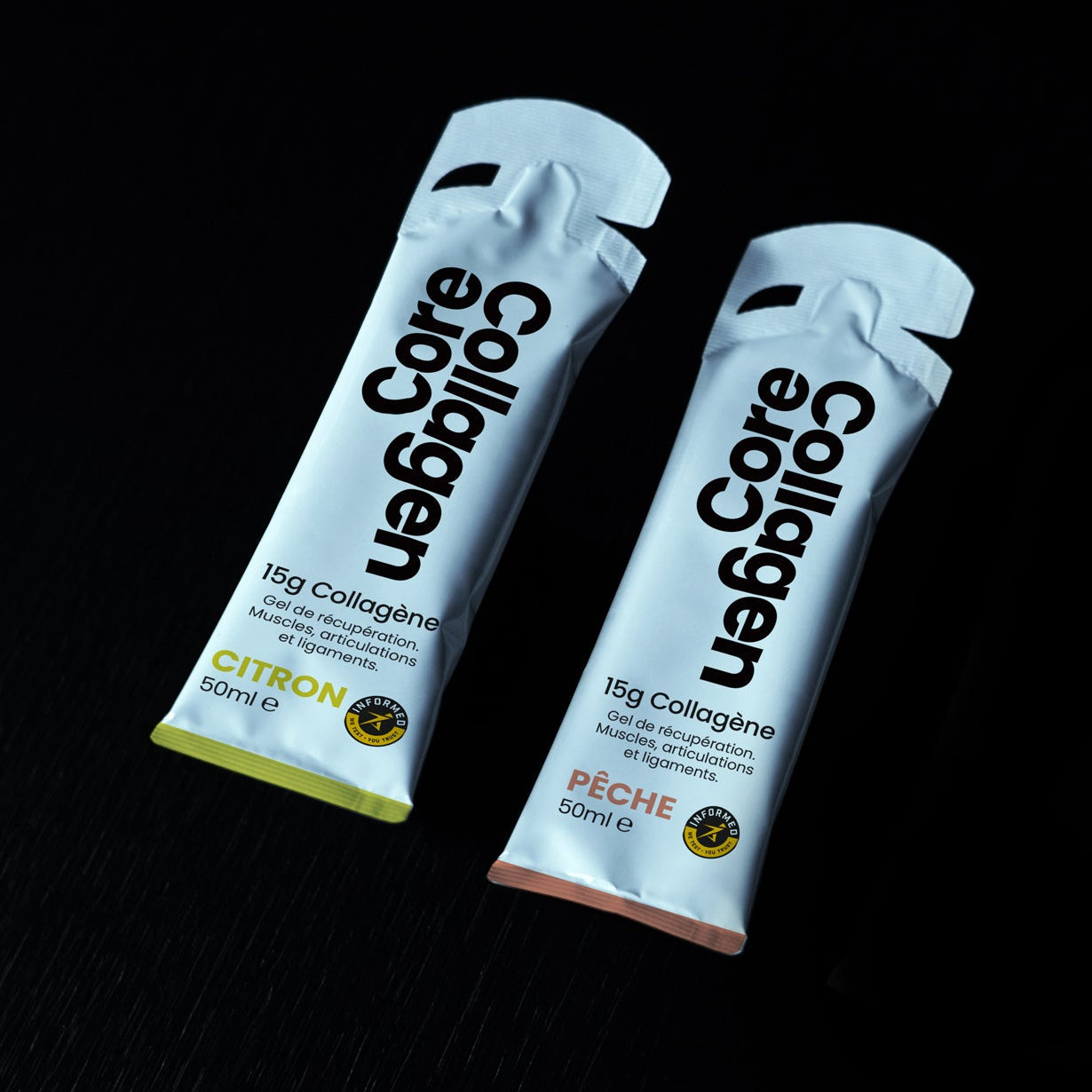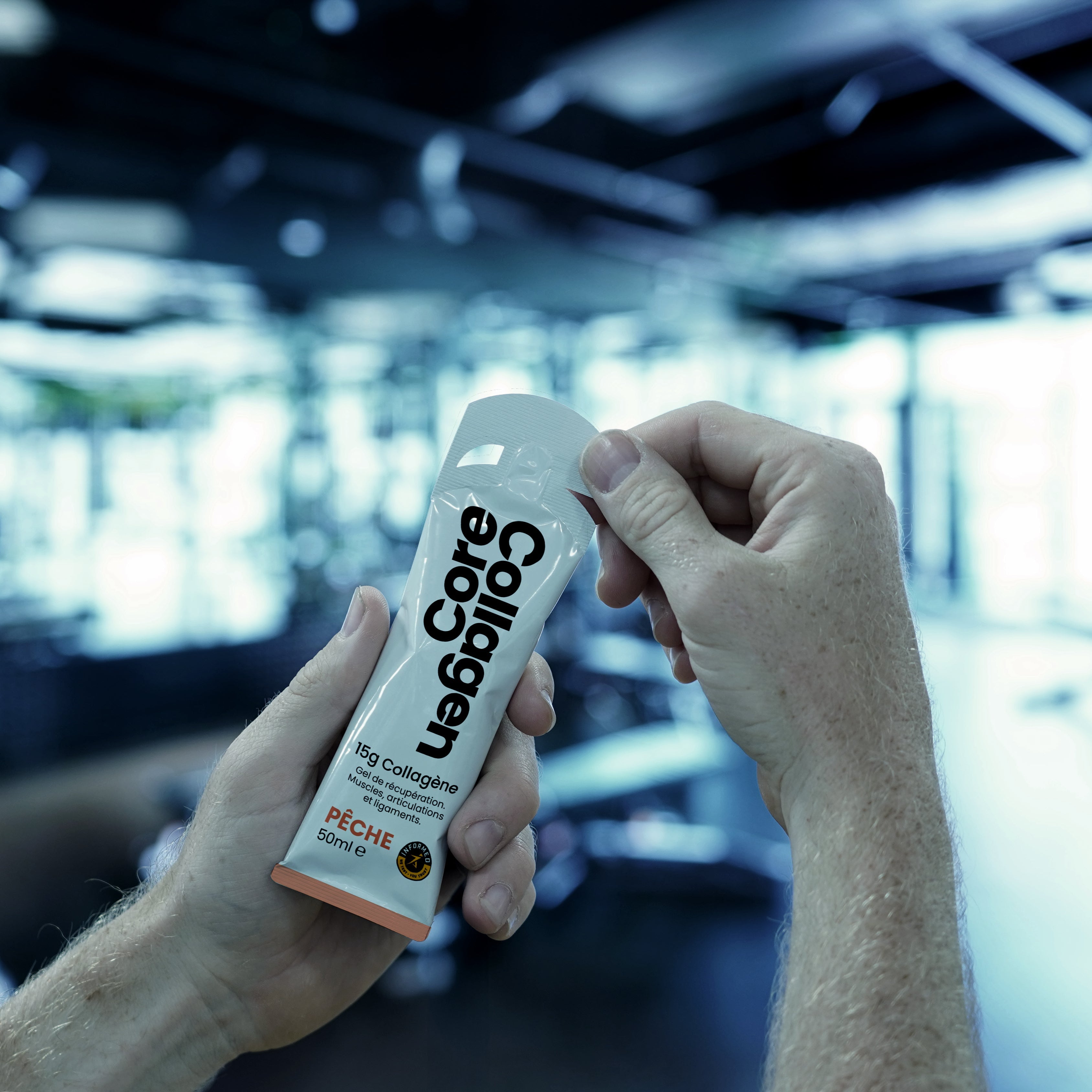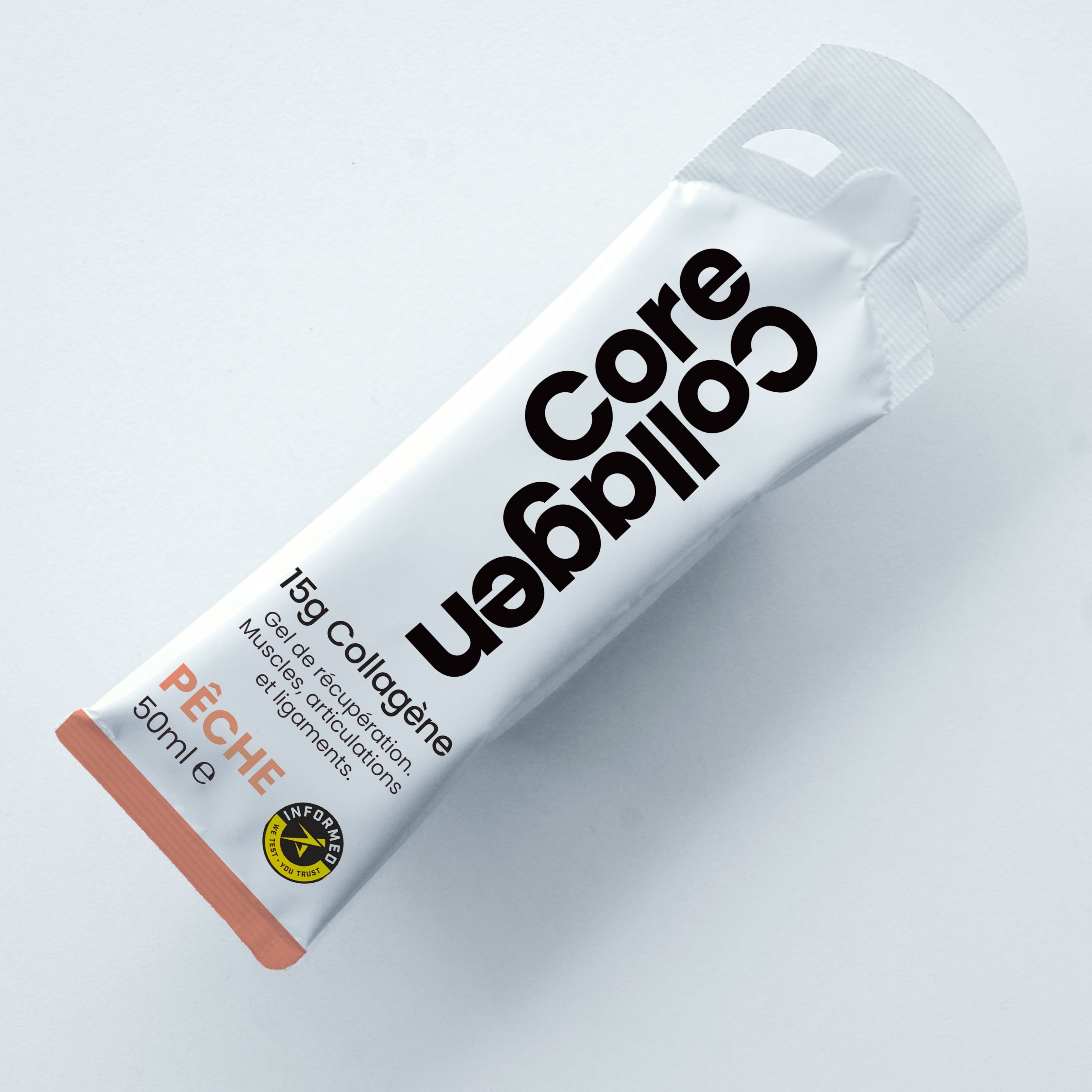Richard Laidlow - The benefits of Collagen for Endurance Athletes

As a world-leading Ironman and triathlon coach, I’ve worked with athletes at every level—from weekend warriors to professional triathletes. Over decades of coaching, I’ve learned one thing: peak performance isn’t just about stamina, speed, or mental toughness. It’s about durability, resilience, and recovery. Without a body that can endure the demands of long-distance training, even the most talented athlete will struggle to reach their goals.
One of the most powerful, yet often overlooked, tools I prescribe to my athletes is collagen supplementation, and more specifically, Core collagen. It’s not a trend, it’s a science-backed strategy for keeping athletes healthy, strong, and consistent in their training. In this post, I’ll explain exactly why collagen matters for endurance athletes, how it works, and how I incorporate it into the routines of every athlete I coach.
Discover more about Coach Laidlow here

Why Connective Tissue Health Matters in Endurance Sports
When people think of endurance training, they usually focus on muscles—they’re the engines that power your performance. But muscles don’t work alone. Tendons, ligaments, and joints absorb repetitive stress, stabilize your movement, and protect your body from injury. And the key structural protein in all of these connective tissues? Collagen.
Endurance sports place enormous strain on your connective tissues. Running hundreds of miles, cycling thousands, or swimming endless laps can lead to wear and tear, inflammation, and microdamage. Over time, this can result in common overuse injuries such as:
- Tendonitis in the Achilles or patellar tendon
- Ligament strain in the knees or shoulders
- Joint discomfort in hips, knees, or shoulders
By supporting connective tissue health, collagen gives your body the building blocks it needs to repair, strengthen, and maintain these structures, allowing you to train harder and recover faster.
What Collagen Does for Endurance Athletes
Many athletes focus on protein shakes for muscle repair—but collagen works differently. While whey or plant proteins target muscle recovery, collagen targets connective tissue recovery. This is crucial for endurance athletes because, more often than not, it’s tendons, ligaments, and joints that limit training volume and performance.
Key benefits of collagen for endurance athletes include:
- Stronger Tendons and Ligaments – Collagen provides the amino acids (glycine, proline, hydroxyproline) needed to maintain tendon and ligament strength, reducing the risk of tears or inflammation.
- Improved Joint Health – Collagen supports cartilage, which cushions your joints during long-distance running, cycling, or swimming. Less joint stress means fewer niggles and greater longevity in training.
- Faster Recovery – Collagen accelerates the repair of connective tissue microdamage, helping athletes bounce back more quickly between workouts.
- Injury Prevention – By fortifying connective tissues before they fail, collagen acts as a proactive strategy to reduce overuse injuries.
The Science Behind Collagen and Endurance Performance
Collagen supplementation has been studied extensively in athletic populations. Research indicates that:
- Collagen with vitamin C can stimulate collagen synthesis in tendons, improving tensile strength.
- Regular collagen supplementation reduces joint pain in athletes with repetitive stress injuries.
- Collagen may enhance recovery by supporting connective tissue remodeling after exercise.
These findings align perfectly with what I see in the field. Athletes who consistently take collagen experience fewer aches and niggles, recover faster, and maintain higher training volumes without compromise.
How I Integrate Collagen Into an Athlete’s Routine
For collagen to be effective, it’s not just about taking a supplement—it’s about timing, consistency, and pairing with supportive nutrients. Here’s how I prescribe it to the athletes I coach:
- Daily Supplementation: Connective tissue remodeling is a continuous process, so collagen works best as a consistent daily support rather than an occasional boost.
- Vitamin C Pairing: Vitamin C is essential for collagen synthesis, so I always recommend taking collagen alongside it.
- Pre-Workout Timing: Collagen intake before training sessions helps repair microdamage in tendons, ligaments, and joints.
- Long-Term Use: Benefits compound over time—athletes need several months of consistent use to see structural improvements.
It’s important to remember that collagen is a complement, not a replacement, for proper training, nutrition, and recovery practices. Sleep, hydration, strength training, and balanced nutrition remain the foundation of endurance performance. Collagen simply strengthens the foundation.
Collagen Isn’t Optional for Endurance Athletes
Endurance sports demand longevity. It’s not enough to race fast once—you need a body that can endure years of training, long-distance races, and high-intensity sessions. Collagen provides the structural support necessary to keep athletes healthy, strong, and consistent.
For every athlete I coach, collagen is a cornerstone of their program. It helps maintain joint health, strengthen tendons and ligaments, accelerate recovery, and prevent overuse injuries. In a sport where small setbacks can derail months of preparation, collagen is a tool that makes a measurable difference.
Key Takeaways
- Endurance training stresses more than muscles—connective tissues are just as important.
- Collagen provides the building blocks for strong tendons, ligaments, and cartilage.
- Supplementing daily with collagen, paired with vitamin C, can enhance recovery and reduce injury risk.
- Consistency matters—benefits compound over months of training.
- Collagen is a preventive, performance-enhancing strategy, not a temporary fix.
Final Thoughts
Endurance sports test the limits of your body, but performance isn’t only about mental toughness or cardiovascular fitness. Longevity, recovery, and connective tissue health are equally important. Collagen is one of the most effective ways to protect and strengthen these systems, allowing athletes to train harder, recover faster, and perform better over the long term.
If you’re serious about your endurance goals—whether Ironman, triathlon, or marathon—you owe it to your body to give it the support it needs. Collagen isn’t just a supplement. It’s an investment in your performance, resilience, and longevity.
— Richard Laidlow






